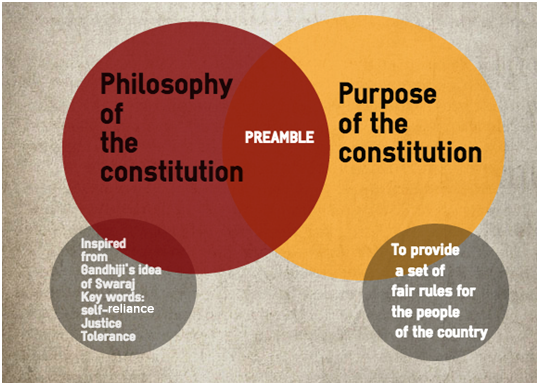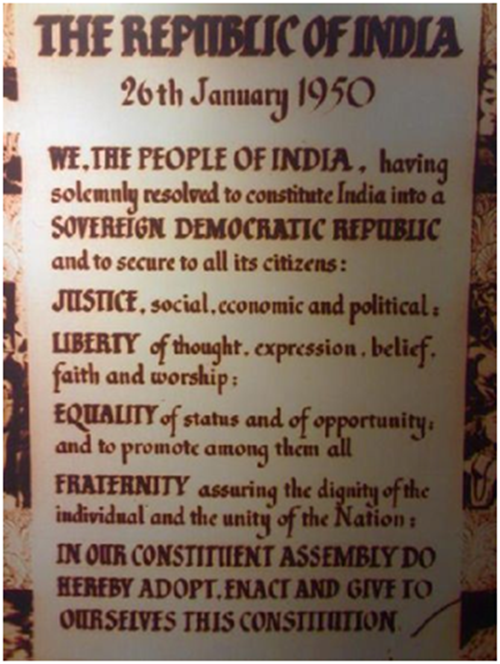The Preamble to our Constitution
Our constitution begins with a preamble. A preamble is an introductory statement that explains a document’s philosophy and purpose. The philosophy of our preamble is deeply rooted in the Gandhian definition of Swaraj that we have already covered. The purpose of the constitution is to establish a set of fair laws guaranteeing fair, respectful and equal treatment of a country’s citizens.
Let us and try and look at what a preamble is visually:


An analysis of the text of our preamble:
The preamble is the soul of our constitution, and very rightly so. The key words that we need to understand are:
- Sovereign
- Socialist
- Secular
- Democratic
- Republic
- Justice
- Liberty
- Equality
- Fraternity
Sovereign means Free. Through this declaration, we have proudly defined ourselves as a free and uncolonised group of people. Hence, no external power or government can dictate our government.
Socialism refers to equality and independence of work and livelihood. Every man and woman of the country has equal rights and opportunities to get a job and earn one’s livelihood. The government should also regulate the ownership of land and industry to reduce inequalities in the nation.
We the citizens of the country have every right to follow any religion we want, and we also have the right to not follow any religion as well. The government absolutely cannot favour any one religion over another.
The word democracy here refers not only to political democracy, where every Indian over 18 years has the right to vote, but also to social and economic democracy. Social democracy is the idea that the government must provide safety, security and equality for its entire people. Economic democracy alludes to the idea of transferring power form the hands of top managers in a workplace to middle managers and workers. To include every stakeholder in the decision making process.
Republic means every citizen has the right to elect the top leaders of the country. This cannot be a hereditary position.
Any citizen of India cannot be discriminated against on the grounds of caste, religion and gender.
We the people of India have no unreasonable restrictions. We can think the way we want, act the way we want, express the way we want.
We are all equal before the law. There should be no discrimination on any grounds.
This refers to a spirit of brotherhood that all Indian citizens are expected to live by.